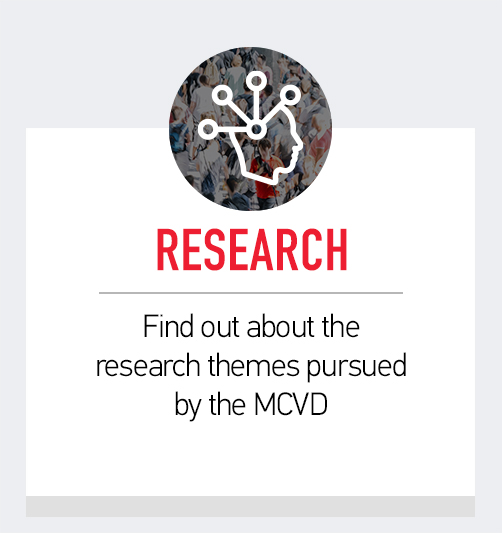
Featured Publication

A new form of Kaposi sarcoma arising in treated people living with HIV
Kaposi sarcoma, a skin cancer caused by herpesvirus-8, develops in the context of immunosuppression or aging. In people living with HIV, Kaposi sarcoma is considered as a harbinger of AIDS and its incidence decreased with the advent of antiretroviral treatments. However, cases re-emerge in HIV-treated people, re-exposing the stigma of AIDS and suggesting an influence of senescence. In their latest article in the AIDS Journal, MCVD member Dr. Jean-Pierre Routy and his co-researcher Dr. Léna Royston report this new form of the disease and are implementing a study in HIV-infected and elderly individuals to understand the mechanisms involved, and develop novel therapies.
Newsroom (March 31 2020)

Tackling more COVID questions
McGill medical experts returned for a follow up webcast to address an ever-growing range of questions related to the COVID-19 pandemic and its impact on us as individuals and as a community.
Dr. Marcel Behr, Co-Director, McGill Interdisciplinary Initiative in Infection and Immunity (Mi4) and Interim Director of McGill Infectious Diseases Division
Dr. Timothy Evans, Inaugural Director and Associate Dean of the School of Population and Global Health, Faculty of Medicine
Newsroom (Feb 5 2020)

Coronavirus in context
Separating facts from fiction with McGill experts
In this special online discussion, two of McGill’s leading health experts discuss the risks, challenges and long-term outlook surrounding the novel coronavirus outbreak. With: Dr. Timothy Evans, Inaugural Director and Associate Dean of the School of Population and Global Health, Faculty of Medicine Dr. Chen Liang, Interim Director of the McGill AIDS Centre and member of the McGill Interdisciplinary Initiative in Infection and Immunity Scientific Advisory Committee.
Acknowledging Dr. Wainberg

“When I look back on my career, I always feel that the most important contribution of my life was political and not scientific” -- Mark Wainberg, 1945-2017
In 1990 a group of McGill researchers, led by Dr. Mark Wainberg, came together to form the McGill AIDS Centre. They were united in their resolve to find solutions to the devastating HIV/AIDS epidemic. At the time, only 9 years after the first case of AIDS had been reported, 10 million people were already infected with HIV globally. There was no effective treatment available, morbidity and mortality from AIDS were rapidly increasing, and HIV-infected people were highly stigmatized.



